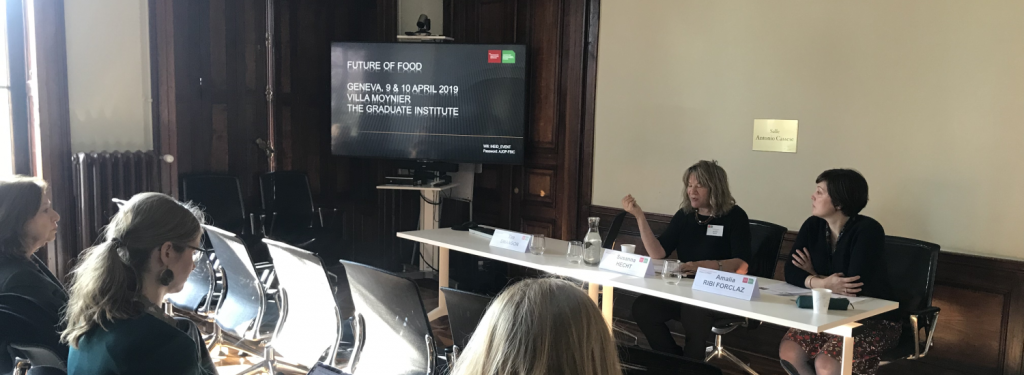On 9-10 April 2019, Susanna Hecht and Amalia Ribi Forclaz, Professors in International History at the Graduate Institute, organised together with the Centre for International Environmental Studies a two-day workshop on the Future of Food. The purpose of the workshop was to explore the past, present and future of the powerful agrarian transitions that are under way in rural landscapes in the 21st century against a backdrop of climate change.
Held at the Villa Moynier the event brought together climate scientists, historians, anthropologists, international lawyers, economists and contemporary analysts of farming systems and vulnerabilities, to explore issues related to food and farming. Through 6 panels, participants explored the historical state and corporate visions of food production in the 20th century, the evolution of debates surrounding seed modification and conservation, the similarities and differences between historical and current models of agrarian development, the role of international regulatory frameworks and social movements and, last but not least, the organic and agro-ecological alternatives to the agro-industrial complex.
The workshop provided an excellent opportunity for experts from different disciplinary backgrounds and regional expertise to exchange knowledge and reflect on common issues and potential solutions with regard to future food production. The workshop succeeded in starting off an interdisciplinary as well as inter-institutional discussion on the emerging serious questions on climate change and agriculture from both a global, regional and local perspective. The event also demonstrated the role historians can play at this critical juncture and the need for closer cooperation between disciplines with regard not only to scholarly reflection and methodological approaches but also to policy making.


